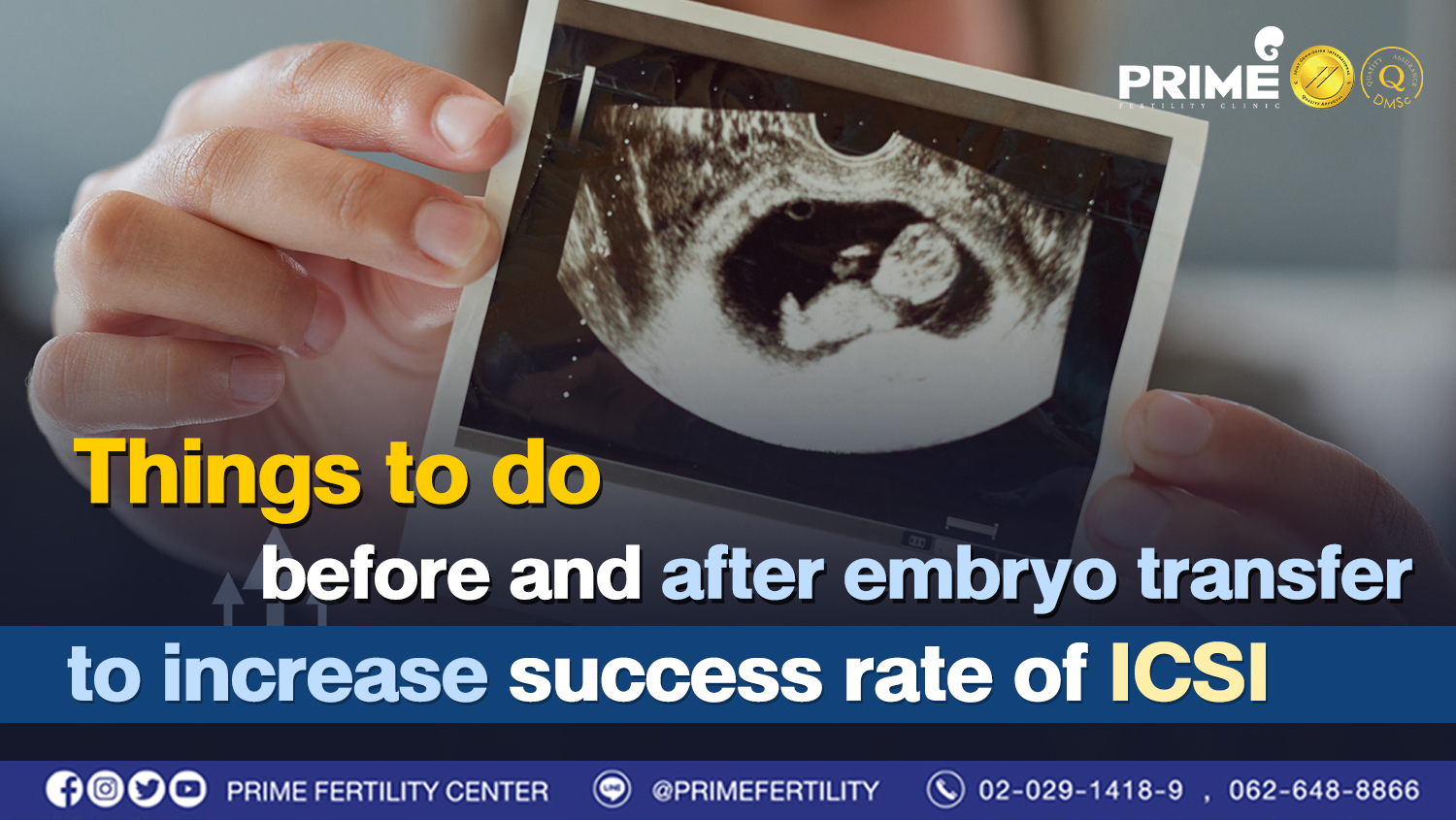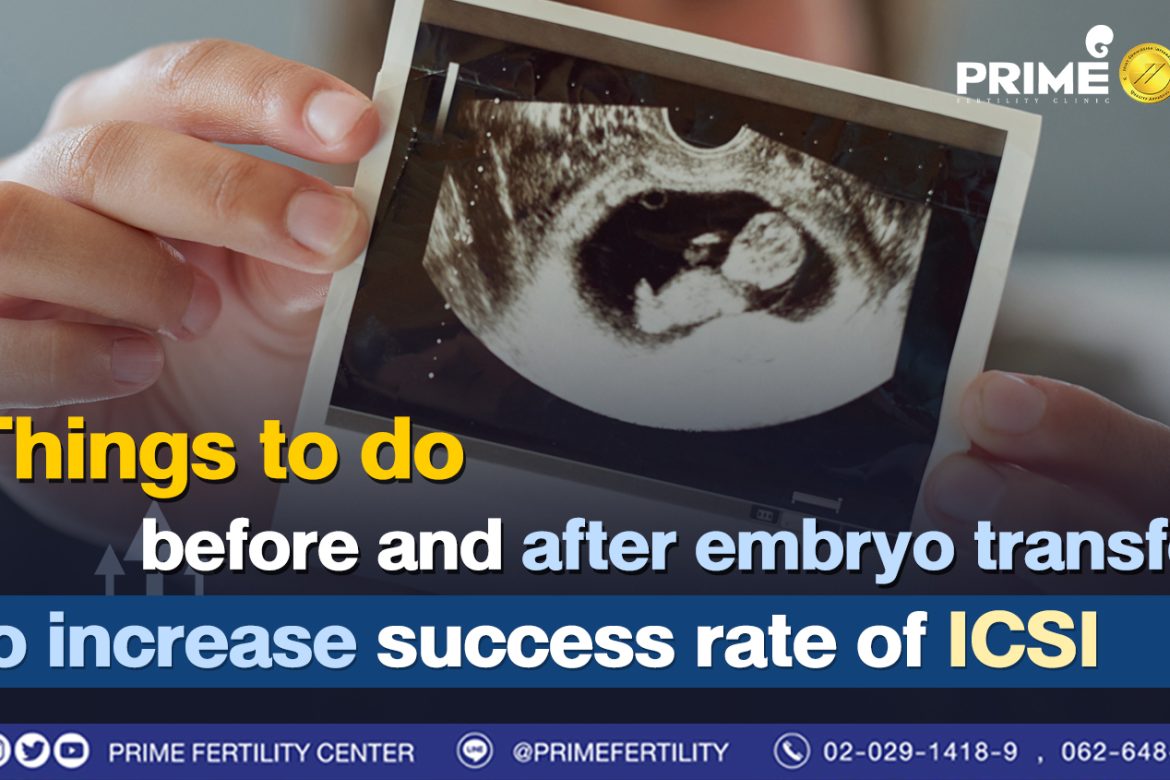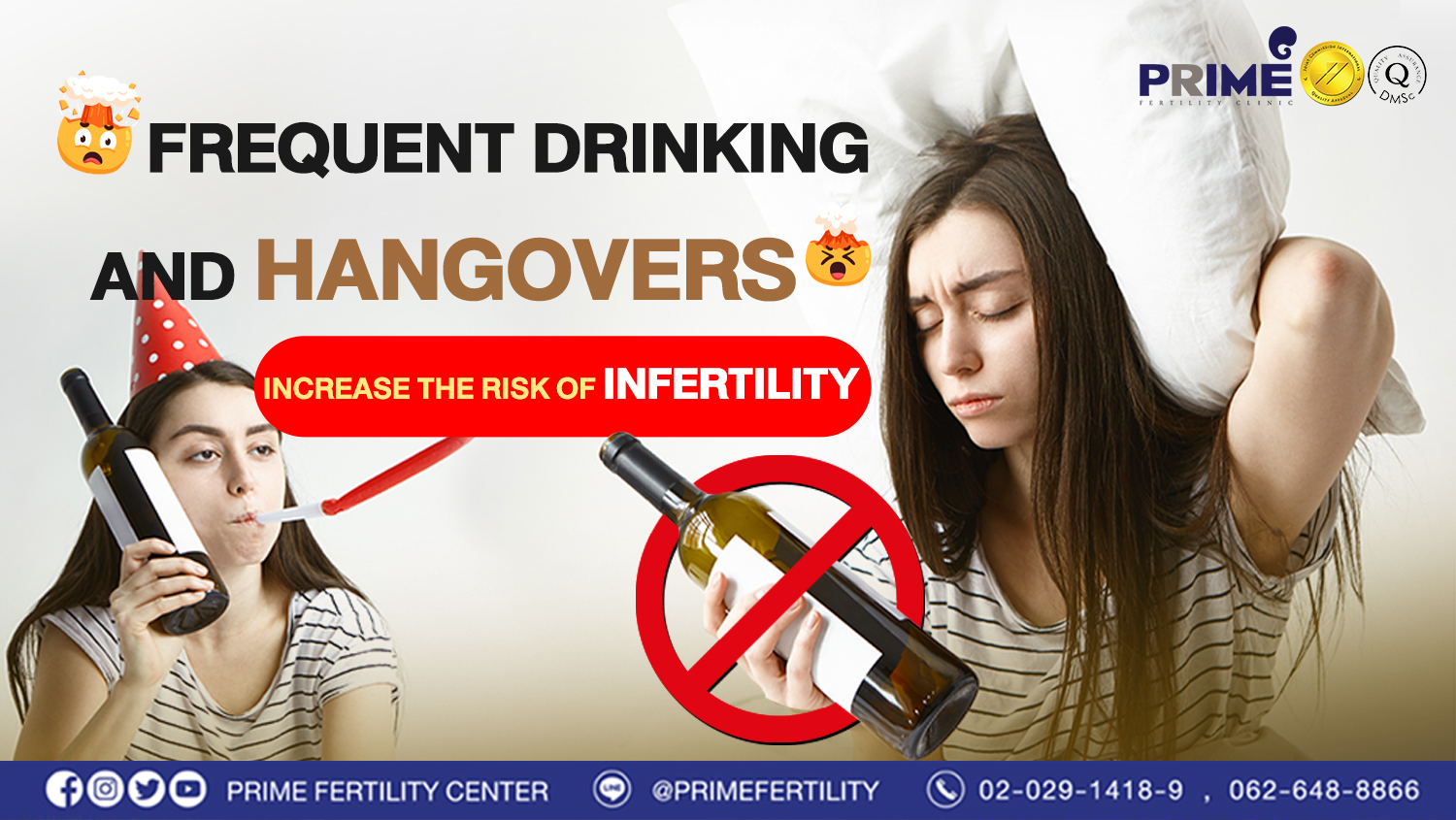Things to do before and after embryo transfer to increase success rate of ICSI!

Meta Title: Things to do before and after embryo transfer to increase success rate of ICSI
Meta Description: Whoever plans for ICSI should know! How many types of embryo transfer? What to do before and after the procedure? Is there any side effect? Let’s find out now!
———————————————————————————————————————————————————————–
Infertility is a problem that many couples may be facing. This problem can occur for many reasons. It can come from both the male and female sides. But medical technology nowadays has been improved a lot, especially IVF. This is a method that helps infertile couples have a greater chance of getting pregnant.
One important step in IVF is embryo transfer. This is a delicate process and requires a lot of cooperation from patients. In order to have a successful transfer as desired, there are various practices before and after embryo transfer that patients should know and strictly follow.
HDmall.co.th together with Prime Fertility Center have gathered information you should know about embryo transfer. Including the types of embryo transfer, things to do before and after embryo transfer, and side effects after the procedure. This information will help increase the success rate for couples planning to undergo IVF.
What is embryo transfer?
Embryo transfer is the process of bringing an embryo that has been fertilized outside the body back into the woman’s uterus to allow implantation and growth into a baby.
Embryo transfer is the final step of IVF process that is very important for a successful pregnancy. The embryo is transferred by inserting a small sterile catheter through the cervix into the appropriate location in the uterus.
The key to embryo transfer is placing the embryo correctly in the uterine cavity so that it can implant into the uterine lining and develop into a healthy pregnancy.
How many types of embryo transfer?
There are 2 main types of embryo transfer as follows:
- Fresh Embryo Transfer (Fresh ET)
Fresh embryo transfer is an embryo transfer procedure that is done after eggs are collected and fertilized outside the body with sperm. The embryos will be cultured for 3-5 days before transferring embryos that are healthy and growing well back into the woman’s uterus. The steps of fresh transfer are
- Ovarian stimulation: The doctor will prescribe with hormone injections to induce woman’s ovaries produce multiple eggs.
- Egg pick up: When the eggs are fully mature, the doctor will perform egg retrieval to extract the eggs out of ovaries. This is a transvaginal procedure using an ultrasound scan to guide the operation.
- Fertilization: The retrieved eggs will be fertilized with sperm inside a laboratory.
- Embryo culture: Embryos obtained from IVF will be cultured for 3-5 days in the laboratory.
- Embryo transfer: If the embryos have good quality, the doctor will transfer to the uterine cavity using a tiny sterile catheter through the cervix.
Benefits of fresh embryo transfer
- Faster process
- Save cost of embryo freezing
- Save cost of embryo thawing
Precautions of fresh embryo transfer
- Complication of ovarian stimulation, such as OHSS (Ovarian Hyperstimulation Syndrome)
- Generally, fresh embryo transfer is suitable for patients who are healthy and are not at risk of pregnancy complications.
- Frozen Embryo Transfer (FET)
It is a process of transferring frozen embryos through a thawing process before being inserted into the woman’s uterus. The process for frozen embryo transfer is as follows.
- Egg stimulation and retrieval: This procedure is similar to fresh embryo transfer. The doctor will stimulate the woman’s ovaries to produce many more eggs. Then the eggs will be extracted.
- Fertilization and embryo culture: The retrieved eggs will be fertilized with sperm inside a laboratory. Embryos obtained from IVF will be cultured for 3-5 days in the laboratory.
- Embryo freezing: The best quality embryos are frozen for later use when the endometrium is suitable.
- Endometrial preparation: Before frozen embryo transfer, the doctor prepares the woman’s uterine lining for implantation by using some uterine preparation medicines.
- Embryo thawing and transfer: When the endometrium is ready, the frozen embryo is thawed and transferred into the uterus using a small sterile catheter inserted through the cervix.
Benefits of FET
- Higher success rate than fresh transfer
- The women will have more time to prepare body for pregnancy.
- Reduce the risk of complications related to ovarian stimulation.
- Keep the embryos for the future need.
- Suitable for couples who plan for embryo’s genetic testing. Increase your chance of getting pregnant and reduce the chance of miscarriage.
- Frozen embryo transfer in women over 35 years of age is more effective than fresh embryo transfer.
Precaution for FET
- The cost is higher than fresh embryo transfer.
Preparation before embryo transfer
Embryo transfer is an important step in the IVF process. That will help increase your chances of getting pregnant. Therefore, proper preparation before embryo transfer is very important. Preparation before embryo transfer includes the following guidelines:
- Doctor consultation with transvaginal ultrasound and blood test
- Visit the doctor on day 2-3 of your period to evaluate the uterine cavity and start taking hormone medication. The doctor will prescribe hormone medication to prepare the endometrium for embryo implantation.
- The doctor will schedule a follow-up appointment approximately 10 days after taking the hormone medication. In case where the endometrium is not yet suitable for embryo transfer, the doctor will adjust the hormone dosage and make an appointment to follow up again. In case where the endometrium is suitable for embryo transfer, the doctor will prescribe oral and vaginal suppository medicines to prepare the endometrium 5 days before the transfer day. After that, the doctor will schedule date and time for the embryo transfer.
- Cope with stress – Stress is one of the factors that affect the success of embryo transfer. There are several ways to relieve stress, such as meditation, exercise, or doing some activities that you are interested in.
- Food – Eating a healthy diet is important for preparing before embryo transfer. You should eat foods such as vegetables, fruits, and whole grains.
- Exercise – Regular exercise can help improve circulation and reduce stress. However, intense exercise should be avoided.
- Have enough sleep – Getting enough sleep is very important to preparing for embryo transfer. You should sleep a total of 8 hours per night.
- Avoid alcohol and caffeine – Alcohol and caffeine should be avoided before embryo transfer. Because it can affect the implantation of the embryo.
Procedures of embryo transfer
- Drink water and hold your bladder. To make the bladder expand before it’s time for embryo transfer.
- The doctor will perform an ultrasound of the abdomen to find the appropriate location for implanting the embryo.
- The embryologist will submit the embryo to the doctor to transfer into the procedure site.
- After the transfer, the doctor will insert medicine into the vagina.
- The patient will need to lie down and rest for 15-60 minutes after the transfer.
- The doctor will prescribe medication to support pregnancy before leaving. And make an appointment for a blood test for pregnancy on the 10th day after the embryo transfer.
Taking care of yourself after embryo transfer
After the embryo transfer, taking proper care of yourself can increase your chances of getting pregnant and reduce your risk of complications. These are guidelines to take care of yourself.
- Avoid smoking and drinking alcohol and caffeine. This is because it can reduce the chance of pregnancy and increase the risk of complications.
- Avoid taking extremely hot bath. Because high heat may affect the implantation of the embryo.
- Follow up on abnormal symptoms. You should observe for unusual symptoms such as severe abdominal pain, bleeding, or fever. If you experience any of these symptoms, kindly contact your doctor immediately.
- Refrain from having sex. After the transfer, you should refrain from having sex for at least 2 weeks to reduce the risk of infection and stimulating the uterus to contract. This may result in the embryo implantation failure.
- Drink warm water. Drinking warm water helps the circulatory system work better and helps the uterus receive sufficient blood and nutrients for implantation of the embryo. Moreover, it can also help reduce abdominal pain and flatulence.
- Avoid hard exercise. During the time after embryo transfer, you should refrain from hard exercise such as running, jumping, or lifting heavy objects. This may cause the uterus to contract and cause the embryo to fall out.
- Get enough rest. Getting enough rest helps reduce stress and anxiety which affect the implantation of the embryo. You should sleep at least 8 hours a day and avoid staying up late or sleeping at irregular times.
- Eat nutritious food. Eating a healthy diet will provide the body with essential nutrients for implantation. Eat a diet rich in protein, vegetables, fruits, and whole grains. Avoid eating raw or undercooked foods, including foods that are high in fat.
- Take the medicines on time. After embryo transfer, your doctor may prescribe hormone medication to help with implantation. The mother must take the medicines on time strictly according to the doctor’s instructions. This helps stabilize hormone levels in the body and effectively prepares the uterus for embryo implantation. If the medicine is not taken or inserted on time, it can affect the implantation and reduce the chance of pregnancy.
- Follow your doctor’s instructions. Strictly following your doctor’s instructions will increase your chances of getting pregnant and reduce your risk of complications.
Side effects of embryo transfer
Embryo transfer is the final step of the IVF process. This involves taking an embryo and implanting it in the woman’s uterus.
Embryo transfer is generally a safe procedure. But there may be side effects that can occur. The common side effects are as follows:
- Lower abdominal pain: Lower abdominal pain is the most common side effect of embryo transfer. Pain usually occurs within 24-48 hours after embryo transfer and may last for up to a week.
- Vaginal bleeding: Vaginal bleeding is another common side effect after embryo transfer. The blood that comes out is usually pink or brown and can occur within 24-48 hours after embryo transfer.
- Bloating is another common side effect after embryo transfer. Bloating is usually caused by hormones used to stimulate ovulation.
- Nausea: This is usually caused by hormones used to stimulate ovulation.
- Headache is a common side effect. It is often caused by stress and anxiety related to embryo transfer.
Where should you be treated with ICSI?
For any couples who are planning for ICSI, it is recommended to choose a health facility that is specialized in this field. Providing the test with high standard, performed by skillful doctor and scientists using high-quality equipment. In addition, an individual consultation is provided as it is very important to the success of pregnancy.
Any couples who are unable to get pregnant by natural method and want to be treated with ICSI, we recommend you to visit Prime Fertility Center. The clinic is specialized in providing infertility treatment that is trusted by customers all over the country. Select modern technology to treat infertility efficiently. Prime Fertility Center has been certified by international standards, such as JCI (Joint Commission International) of the United States. Our laboratory has been accredited by ISO 15189 and ISO 15190, which are the international standards for certifying the competence and safety of medical laboratories.
Moreover, we have a specialist team of doctors, embryologists, and skillful staff in providing complete care and counseling. You can be confident that the treatment will meet your needs and the results will be as you desired.
—————————————–
Reference:
- American Pregnancy Association, Embryo Transfer (https://americanpregnancy.org/getting-pregnant/infertility/embryo-transfer/), 1 March 2024
- Emory University School of Medicine, Embryo Transfer (https://med.emory.edu/departments/gynecology-obstetrics/patient-care/patient-education/embryo-transfer/index.html), 1 March 2024
- Bumrungrad Hospital, ใครบ้างที่ควรจะต้องตรวจโครโมโซมของตัวอ่อน (https://www.bumrungrad.com/th/treatments/embryo-transfer), 1 มีนาคม 2567
HD Mall, การปฏิบัติตัวหลังย้ายตัวอ่อน ครบทุกข้อควรระวัง (https://hdmall.co.th/c/hdinsight-precautions-after-embryo-transfer-by-ibaby-fertility-genetic-center), 1 มีนาคม 2567
Should you be interested in getting fertility consultation, please contact us. | ICSI Bangkok | ICSI Thailand | fertility clinic bangkok
Tel. : 062-648-6688 / 062-648-8866 / 02-029-1418–9
Line : @primefertility
Facebook : Prime Fertility Center
E-mail : info@primefertilitycenter.com




